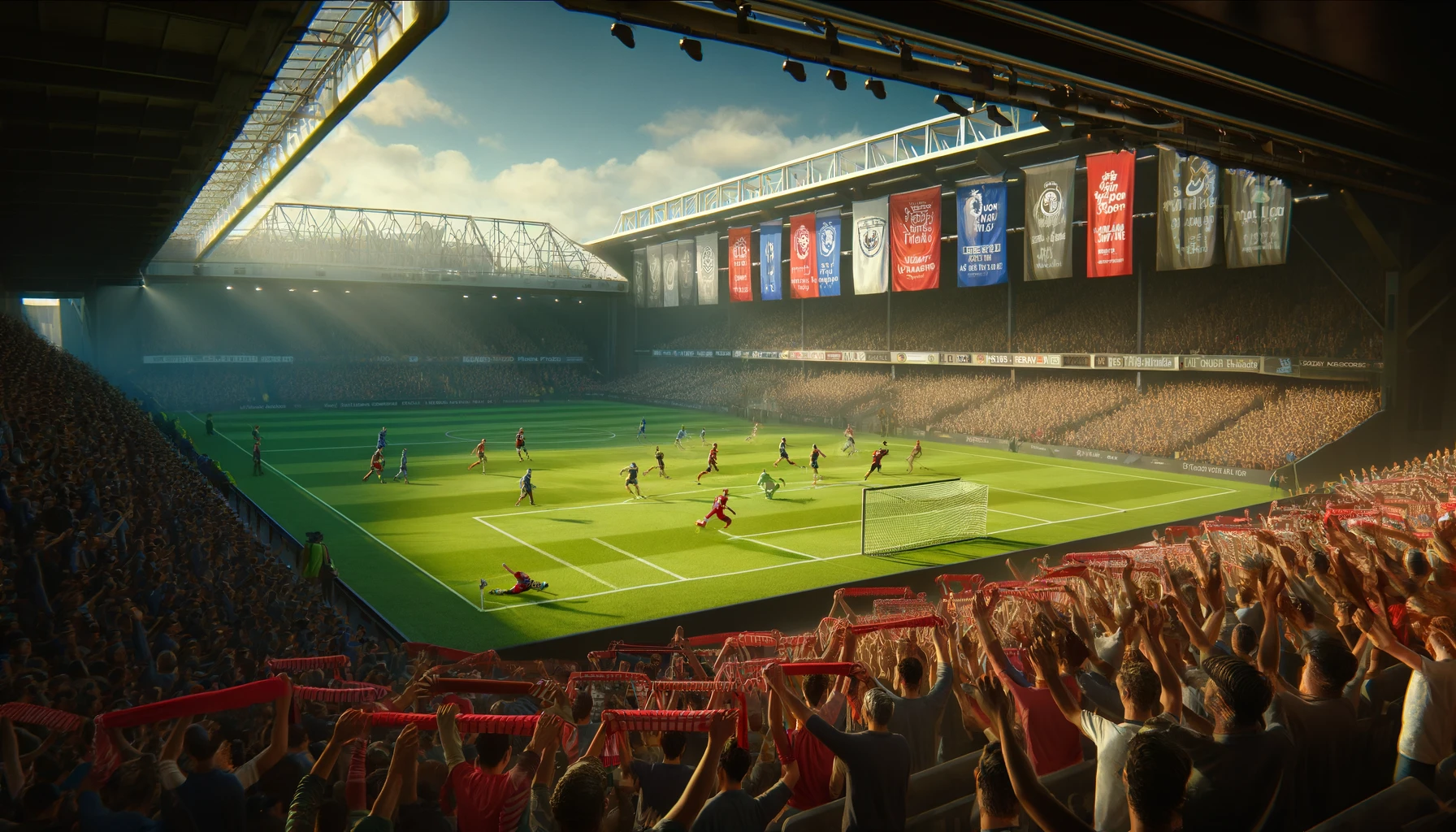A Footballing Phenomenon: The English Premier League

When it comes to football, one of the top-rated leagues in the world is the English Premier League (EPL) and rightly so considering how competitive and thrilling it can get. Founded in 1992, this league has exploded into a global phenomenon, garnering millions of fans, top-tier players, and huge investments from around the world. This article aims to explore the legacy, the allure, as well as the continuing relevance of the EPL in the international football arena.
A Brief History of English Premier League
The English Premier League had its beginnings in the early 1990s with the establishment of the Premier League in 1992 when the clubs in the Football League First Division broke away from the Football League. This decision was motivated by the desire to maximize income from TV rights and to improve the quality of play as a whole. The inaugural season of the EPL began on August 15, 1992, with 22 teams going up against each other for the prized title.
Sir Alex Ferguson’s Manchester United was the dominant team over the leagues early years. THEY defined success, winning titles galore and earning themselves a place as one of the world’s greatest footballing outfits. Arsenal, Chelsea, Liverpool and Manchester City are just four of a number of clubs who have challenged for the league’s title during the years and helped to build-up the EPL’s storied history.
Unique Appeal
What makes the EPL so compelling is its unmatched wildness and competition. Such teams are afforded their day in the sun, unlike the leagues where a few behemoths crush the smaller clubs without hesitation. This uncertainty guarantees exciting matches and dramatic endings for the entire season.
Another important reason for the league’s popularity is its global reach. The EPL’s global reach: The EPL’s broadcast deals cover more than 200 countries, bringing together an audience from diverse cultures and backgrounds. The league’s multiracial character is reflected on the field, too, with stars from all corners of the globe on its pitches. The presence of these different cultures in professional sports has led to a more vibrant and rich footballing life and also created a sense of global friendships.
Iconic Clubs and Rivalries
The English Premier League (EPL) is undoubtedly home to some of the most famous football clubs in history, each with their own identity and loyal fans. Teams such as Manchester United, Arsenal, Chelsea, and Liverpool have a storied past of success and an international fan base. With a lineage of results, Manchester City has established itself as a powerhouse of the past few iterations, school of the game: Pep Guardiola has been at the foreground of a generation of tactical flair and technical expertise.
The league’s rivalries are legendary, creating a layer of intensity and drama in the competition. There are many intense fixtures of rival teams that catch the attention of fans all over the globe; the North West Derby featuring Manchester United and Liverpool, for instance, the North London Derby, including Arsenal and Tottenham Hotspur, and even the Manchester Derby that pits City and United against one another. These encounters go beyond mere football matchups, representing intense regional pride and historic animosities.
Star Players and Managers
The EPL had always been a major drawer for top talents around the world, on the pitch and off it. Thierry Henry and Cristiano Ronaldo, Kevin De Bruyne and Mohamed Salah: The league has attracted players who define eras, who raise standards of excellence.
Just as important are the managers padding the league with unique philosophies and tactical acumen. Great managers over the years, such as Arsène Wenger, José Mourinho and Sir Alex Ferguson have left their mark on the EPL. Today’s managers — Pep Guardiola, Jürgen Klopp, Mikel Arteta — push the league’s image forward with their progressive ideas about soccer.
Financial Powerhouse in EPL
No force in football can match the financial pull of the EPL. The league rakes in billions of pounds every year, thanks to lucrative broadcasting agreements and commercial partnerships. The combined wealth of these clubs translates into an unprecedented level of spending power, facilitating significant investments in player acquisitions, stadium upgrades and youth academies, thereby improving the game from both visual and structural perspectives.
But this has also led to concerns about a growing gulf between the top and the rest of the league. Smaller clubs struggle to compete against teams like Manchester City and Chelsea who can afford to invest a significant amount of money into their squads. There are talks to try and even this separation out as the years go on, such as through a more fair split in TV cash, but this seems to remain standing within the football world.
Impact Beyond Football
The EPL’s influence knows no bounds. The league’s international reach helps promote a lot of things about England, and English culture and tourism are among them. From globally-recognized stadiums such as Old Trafford, Anfield, and Stamford Bridge to the quaint local clubs of the English football pyramid, the vast array of establishments encourages thousands of visitors each year, generating local economies on their own and providing a snapshot of the unique character of English football.
Furthermore, the EPL through campaigns such as “No Room for Racism” shows its commitment to social responsibility, addressing discrimination in football and throughout society as a whole. Likewise, some players and clubs participate in outreach programs to inspire their community.
Challenges and the Road Ahead
While the EPL has lots of great things going for it, it does have a lot of challenges to navigate to determine its future path. With the emergence of competing leagues, the impact of the COVID-19 pandemic and constant discussions about player welfare and fixture congestion, there are new aspects to be dealt with and managed with caution.
Moreover, the league has to balance commercial success with its competitive integrity. Yes, attracting global superstars and wealthy investors is important. But so, too, is retaining the essence of English football — its traditions, grassroots development and fan engagement.
Conclusion
Wagging as a testament of its rich history, fantastic competitive spirit, and global appeal, the English Premier League is now the world’s best football league. It is the jewel in the crown of club football, a celebration of the finest players, managers, and moments the game has to offer. The EPL has hours of footballing joy, hours of drama and come to transform the sports industry globally; full of things to look forward to.






